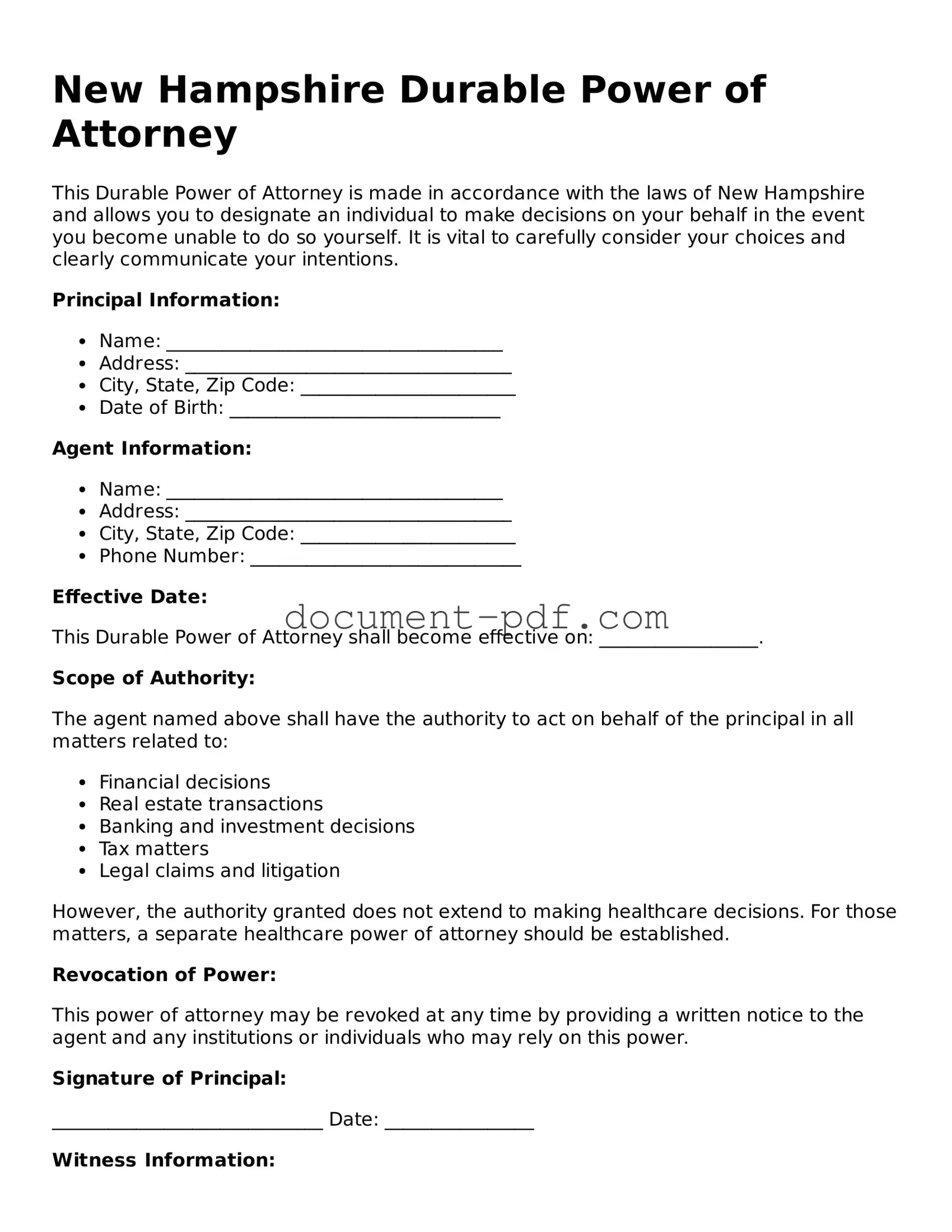Attorney-Verified New Hampshire Durable Power of Attorney Template
A Durable Power of Attorney in New Hampshire is a legal document that allows an individual to appoint someone else to make financial and legal decisions on their behalf, even if they become incapacitated. This form ensures that your wishes are respected and that your affairs are managed according to your preferences. To get started on filling out the form, click the button below.
Access Durable Power of Attorney Editor Here

Attorney-Verified New Hampshire Durable Power of Attorney Template
Access Durable Power of Attorney Editor Here
Finish the form without slowing down
Edit your Durable Power of Attorney online and download the finished file.
Access Durable Power of Attorney Editor Here
or
Click for PDF Form
